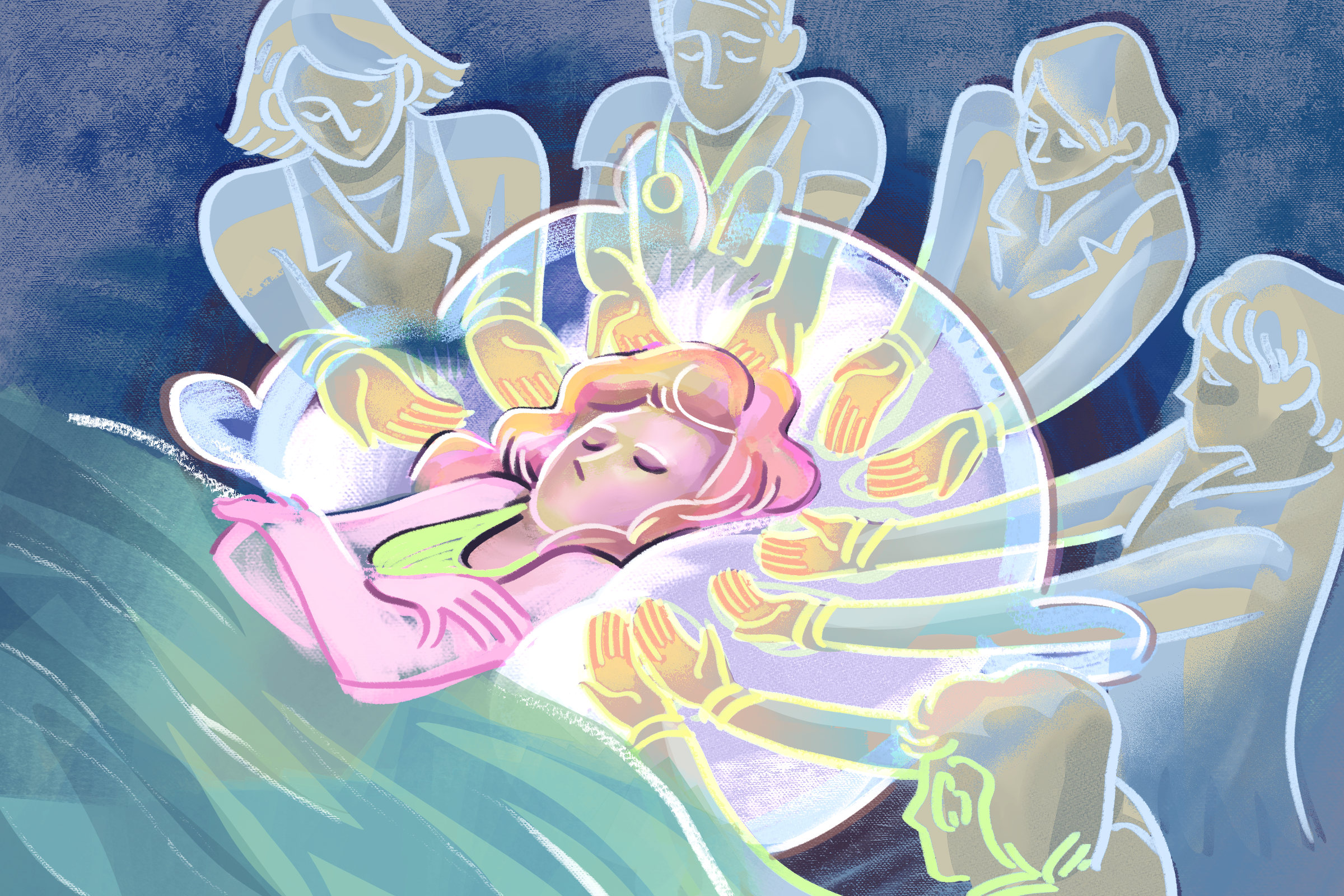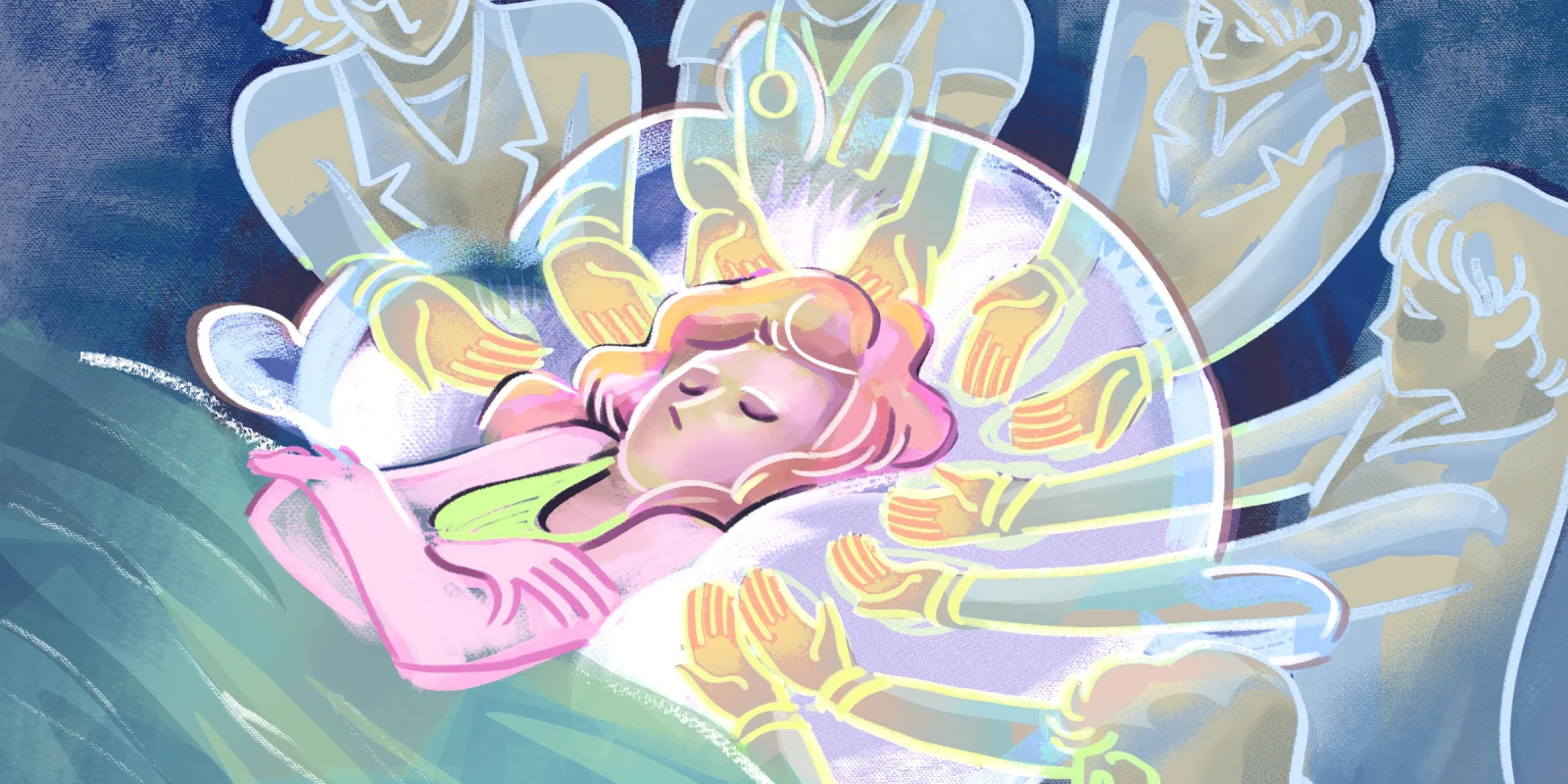 Death. Mortality. End of Life. Something inevitable, yet rarely discussed and a source of intense discomfort for most. When mentioned, it is considered inauspicious and rude in many cultures. And yet, death is an integral part of the workday for a critical care physician like me. Death itself was never a topic of discussion in medical school or training. At most, we talked about difficult conversations and decision making.
Death. Mortality. End of Life. Something inevitable, yet rarely discussed and a source of intense discomfort for most. When mentioned, it is considered inauspicious and rude in many cultures. And yet, death is an integral part of the workday for a critical care physician like me. Death itself was never a topic of discussion in medical school or training. At most, we talked about difficult conversations and decision making.
Death is inevitably encountered by every physician at some point and certainly by every human. Then why aren’t we talking about this routinely? As health care providers, we are still fumbling with the topic ourselves. We are not routinely trained to talk about something we are “supposed to prevent.” Until health care globally incorporates Death as a mandatory issue to be discussed with patients, I urge you to be proactive.
If we work so hard to create a life we love, why not at least consider how we would like to die? Life can turn out vastly different from what we expect, yet we make every effort to create a life we value. The same goes for death.
Let us begin to consider how we would like to die. When this question is asked, the most common response is “I want to die in my sleep, at home, surrounded by my loved ones.” Some say they hope to pass on when they are their most active, doing something they love. Yet hospitals are proof that this doesn’t always happen.
People want their health care decisions to reflect their core values. And very few have talked about death and end-of-life issues with their loved ones or doctor. When a family member is hard pressed to make decisions at the end-of-life (for a patient unable to do so for themselves) a prior discussion can at least point them in the right direction.
We draft “wills” for our real estate and valuables. We meticulously assign lawyers, power of attorney to care for our financial assets. What about our most valuable asset, our body, the only constant space we inhabit throughout our lives?
While chatting about this with my aunt, a well-established doctor, she said why discuss something that we are all scared of? I beg to differ. Just like death, divorce or depression are not events we welcome or prepare ourselves for. And yet, if individuals who have experienced divorce or depression kept quiet about it, how would the rest of the world learn what actually helps during those painful circumstances?
Historically, one might have gone through the dying process at home, either due to old age or sickness; likely with family and possibly a healer. Increasingly, this is becoming the exception rather than the rule. Most people are rushed to the nearest health care facility at the earliest sign of pain and distress. I understand it is hard to imagine the circumstances one could face in a health care setting. Or consider the emotional, physical and spiritual impact of impending death. Maybe making the time to discuss some of these issues with our loved ones in this fast-paced world will actually help us.
In many countries a “living will” can give specific guidance about one’s preferences regarding treatment choices. Appointing a “POA for health” or “Health Care Proxy” can ensure a loved one is entrusted with the responsibility of making decisions that mirror your values, when you cannot do so yourself. In India, patients rely on the trust, relationship and conversations between the doctors and family to guide care at the End of Life. Legality is still vague. Palliative care is a fairly new specialty. In a culture where death isn’t considered the end and many believe in reincarnation, it is still considered an unsavory topic to discuss. Even in the U.S. where there are clear cut guidelines for this, it is only a small number of patients (usually the chronically ill) who are familiar with these terms or who make their wishes known.
Interestingly, death always brings everything around me into sharp focus; whether it is actively resuscitating a sick patient at the risk of an untimely death or caring for someone chronically ill, at the end of their life.
"Why would you want to be around dying people?" my loved one asked after watching me return home, thoroughly spent after a grueling day in the ICU. "The dying itself isn’t the miserable part," I responded. Dealing with the strongly ingrained belief “Death is Failure” is what is draining and emotionally exhausting.
Expression of grief by patients and families can take on many forms. Slowly accustomed to the spectrum of human grief, I have learnt to recognize patterns. The inability to face one’s own mortality by asking for every medical test and intervention available. Guilt and making up for lost time by continuing life support for a helpless family member, even when there is little hope. Interpreting the preparation of end-of-life care as “pulling the plug” and “giving up.”
Is fighting a battle at the end of life a courageous struggle or a lack of acceptance with the fear of facing the inevitable? I feel we face these issues because we never ever talk about death until we absolutely have to. And maybe, even if we did make every effort to do so, it would still be incredibly painful and hard. After all, it is difficult to face our own morality, let alone prepare for such a final event in reality. We can at least begin to try.
When we try to exercise, go to the gym and make New Year Resolutions to eat healthy; we invest in our health, quality of life and “living well.”
When we discuss death, educate ourselves about palliative care, health care proxys, living wills, and learn more about the choices available at the end of life; we invest in our end of life experience, quality of death and dying well.
Wellness is more than living well, it includes dying well. The choices we make will, to a large extent, determine both our quality of life and our quality of death.
I believe as doctors, health care providers, patients, and caregivers, if we take small steps to become comfortable with the uncomfortable, we will be better prepared when faced with death. Be it a loved one's, our patients', or our own. Instead of an unwelcome struggle, death can be carefully considered and planned for emotionally.
Nicknamed the “Angel of Death” on three separate occasions, I was initially taken aback. I did, however, feel a gush of warmth at the kindness of those words. I felt grateful and thanked the nurses who gave me this honor. What a privilege, I thought; the ability to relieve pain, help the transition and witness all of it so closely. Some friends and colleagues laugh at the nickname. Possibly because of the dark sense of humor we all cultivate as a coping mechanism. Asking me “why is being called an angel of death a good thing? Aren’t you supposed to resuscitate your patients?”
I beg to differ. My job is to ease suffering, as a health care provider, not simply “save lives.” I am thankful and relieved when patients die peacefully under my care. A large chunk of my day involves talking with dying patients and their families. This is palliative care, providing carefully chosen non-aggressive therapies at end of their life. Sure, I specialize in resuscitating sick patients. I will say this though. It is far more gratifying to care for someone dying well with grace than it is to connect more lines, tubes, and machines to someone who survives a cardiac arrest with little hope of meaningful recovery.
It is a privilege to be by the bedside of someone dying. It is humbling to have family meetings that help them come to the realization their loved one might never come home. It is enlightening to learn how my patient lived their life and how they might want to die. It is a relief when patients and families tell me they are clear on what to do towards the end of life. It is a joy when I am able to provide care that is in sync with the core values of my patient. Caring for these patients is still providing valuable medical care. It is not giving up hope. Death is not failure. There is dignity and grace in dying well. But first, Let’s talk about death. Please.
Sonali Mantoo, MD is a critical care physician, simulation educator, dancer, and yoga teacher. Originally from India, now she is based in New York and has over five years of experience as a consultant. Currently on a sabbatical, she is devoting her time to family abroad, travel, and creative pursuits.
Illustration by April Brust






